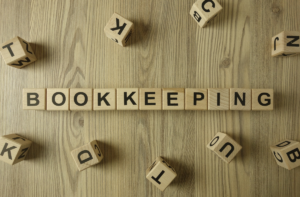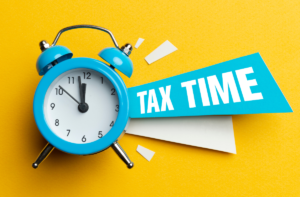
Tax brilliant tip for FY 2024
Tax brilliant tip for FY 2024

Looking for ways to get more money back?
How about these?
Some Ways to save Tax using Superannuation
1. Salary sacrifice
You can cross-examine with your employer to pay some of your salary into your super.
This salary sacrifice is usually on top of the superannuation guarantee minimum percentage payments that your employer is obliged by law to contribute. These payments taken from pre-tax income are called concessional contributions.
What’s the concession?
Your salary is sacrificed straight into your super, so it’s taken from your gross (before-tax) pay. This wedge of your gross pay is then taxed at 15% in the super fund as a substitute of your marginal tax rate, unless you’ve exceeded the concessional contributions cap and/or earn more than $250,000 then you may be subject to additional tax/es.
2. Government co-contribution
Low to middle income earners may be entitled to receive a government co-contribution to their super.
The amount you earn and contribute to your super determines if you qualify and, if so, how much. The maximum co-contribution is $500 each year you’re eligible.
What’s the tax concession?
A government co-contribution isn’t included as part of your taxable income, so you don’t pay any tax on it when it’s paid into your super.
3. Personal super contributions
When adding your personal contributions to your super fund from your after-tax income, they are known as non-concessional contributions. These contributions will count towards your non-concessional contributions cap unless you claim a tax deduction for them. Non-concessional contributions are not subject to contributions tax. If you claim a tax deduction for personal super contributions, they are treated as concessional contributions. Please note that personal contributions must be made before 30 June 2024 to claim tax for FY 2024. Eligibility to claim a deduction for personal super contributions can be checked on the ATO website. However, if a deduction is claimed for personal contributions, you will not be eligible for a super co-contribution.
What’s the tax concession?
Claiming your personal super contributions as a tax deduction, or making a downsizer contribution, may reduce your taxable income. This may diminish the total amount of tax you pay. The amount will vary based on your own personal turn of events.
deductions for home-based business expenses
Taxpayers entitled to claim tax deduction for the work – related proportions of household cost.
Heating, cooling and lighting bills
Costs of cleaning your home working area (including cleaning products or payment for a domestic cleaner if required)
Depreciation of home office furniture and fittings
Depreciation of office equipment and computers
Costs of repairing home office equipment, furniture and furnishings
Small capital items such as furniture and computer equipment costing less than
$300 can be written off in full immediately (they don’t need to be depreciated)
Computer consumables (like printer ink) and stationery
Phone (mobile and/or landline) and internet expenses
What’s covered by the rate?
Energy expenses (electricity and gas)
Phone usage (mobile and gas)
Internet
Stationery and computer consumables
Starting from 2023, phone and internet charges will be included in the fixed rate system. If you use your mobile phone for work both at home and outside, you can no longer claim a separate deduction and must use the fixed rate method. To claim actual use of your mobile phone or home internet, you must use the actual expense method for all work-from-home expenses..
Claiming working from home expenses

Fixed rate method – Using the fixed rate method, they can claim a rate of 67 cents per hour worked at home.
This amount covers additional running expenses, including electricity and gas, phone and internet usage, stationery, and computer consumables. A deduction for these costs cannot be claimed elsewhere in their tax return.
Actual cost method – Using the actual costs method, you work out your deduction by calculating the actual additional expenses you incur when working from home.
Where you incur running expenses for both private and work purposes, you need to apportion your deduction on a fair and reasonable basis. You can only claim the work-related portion as a deduction.

Effective 30 June 2024 Resolution Trustees should make any necessary resolutions prior
30 June of the current year or earlier as resolution made after the year end is invalid.
Remember to have the working from home diary completed and ready and make your Super contribution as early as possible prior 30 June 2024/2025 budget measures.
Featured Articles
Key information on work from home deductions…
Fixed Rate For the 2023–24 income year, you can claim 67 cents per hour for working from home. This rate …

Starting a business? You’ll need to choose a business structure…
If you are starting a business, it’s important to choose the right business structure to suit your needs. As your …

Reducing capital gains tax
Did you know you can reduce your capital gains tax (CGT) bill by offsetting your capital gains with capital losses? …

Bookkeeping for small businesses
Why Bookkeeping Matters for Small Businesses: Organizing Information: Bookkeeping helps organize financial data, making it easier to understand and analyze. …

Growing your superannuation
Personal Super Contributions: You can boost your super by adding your own personal contributions directly to your super fund. If …

Lodging your tax return
A tax return is a document you submit to the tax authorities (such as the Australian Taxation Office, ATO) that …

Own an investment property? Implement this from the get-go to make taxation easier…
Don’t make the mistake of going into an investment without thinking about taxation. Let’s say your property is being used …


